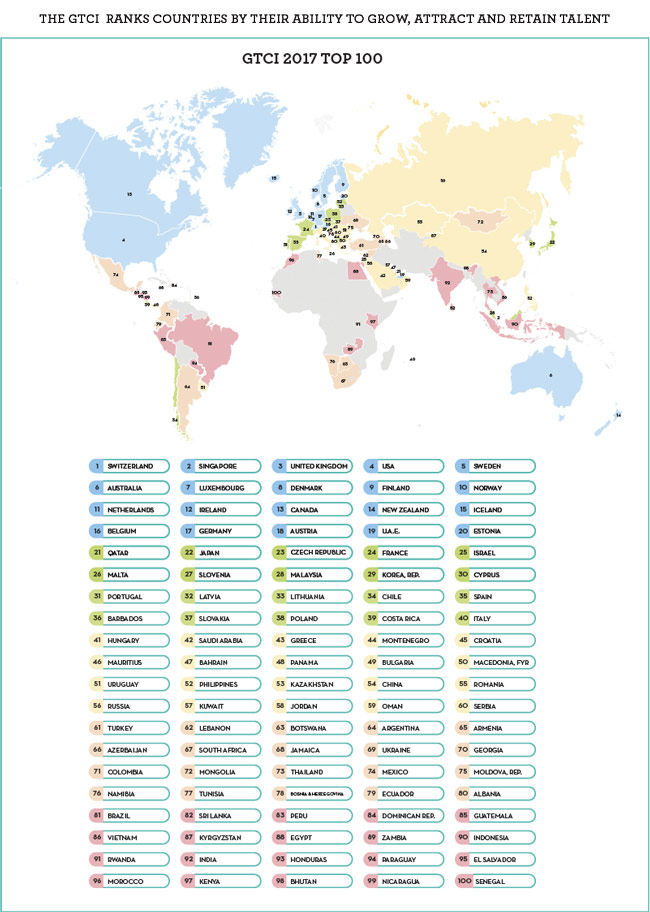The Business School for the World, released the fourth edition of Global Talent Competitiveness Index (GTCI). Produced in partnership with The Adecco Group and the Human Capital Leadership Institute of Singapore (HCLI), the GTCI is an annual benchmarking report that measures the ability of countries to compete for talent.
Switzerland and Singapore occupy the top spots in GTCI 2017, with four Nordic countries in the top 10 (Sweden, Denmark, Finland and Norway). The United Kingdom and the United States rank third and fourth respectively. As compared to other countries in the Eastern, Southeastern Asia and Oceania region, Vietnam’s performance is on average, at 86th. Malaysia, Philippines and Thailand are 3 countries that are doing better than Vietnam (ranked 28th, 52nd and 73rd respectively). Meanwhile, Indonesia and Cambodia lag far behind; they ranked 90th and 108th respectively.
Vietnam (86th), however, fell 4 ranks from last edition, yet the country’s Global Knowledge (GK) capabilities has reached an impressive level, ranked 56th, with talent impact sub-pillar at 23rd ranking, better than Mongolia, Thailand, Indonesia and Cambodia. Even though the Grow pillar is only at 88th but Vietnam’s skills of Reading, maths, science, scoring high at the 10th this year, higher than Australia, New Zealand, Thailand, Malaysia and Indonesia.
The GTCI measures how countries grow, attract and retain talent, providing a resource for decision makers to develop strategies for boosting their talent competitiveness. The data and country coverage of the index have continued to broaden, allowing this report to cover 118 coun¬tries (as opposed to 109 last year). The theme of this fourth edition of the GTCI is Talent and Technology: Shaping the Future of Work. The 2017 report explores the effects of technological change on talent competitiveness, arguing that while jobs at all levels continue to be replaced by machines, technology is also creating new opportunities. However, people and organizations will need to adapt to a working environment in which technology know-how, people skills, flexibility and collaboration are key to success. Also horizontal networks are replacing hierarchies as the new leadership norm. Governments, business players and educational institutions need to work together to build / reform educational systems and labour market policies that are fit for these purposes.
